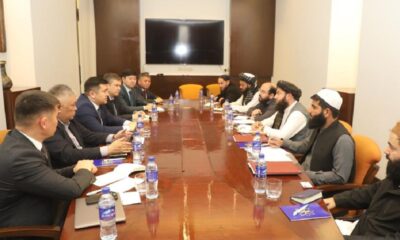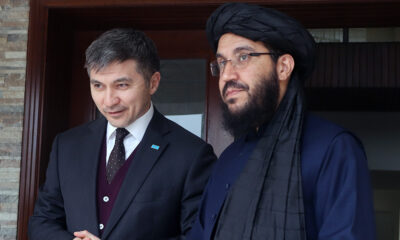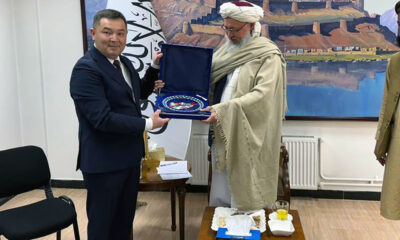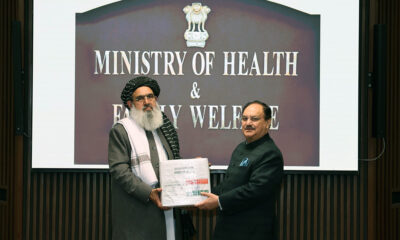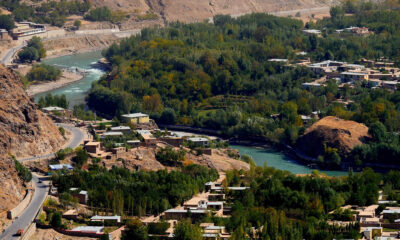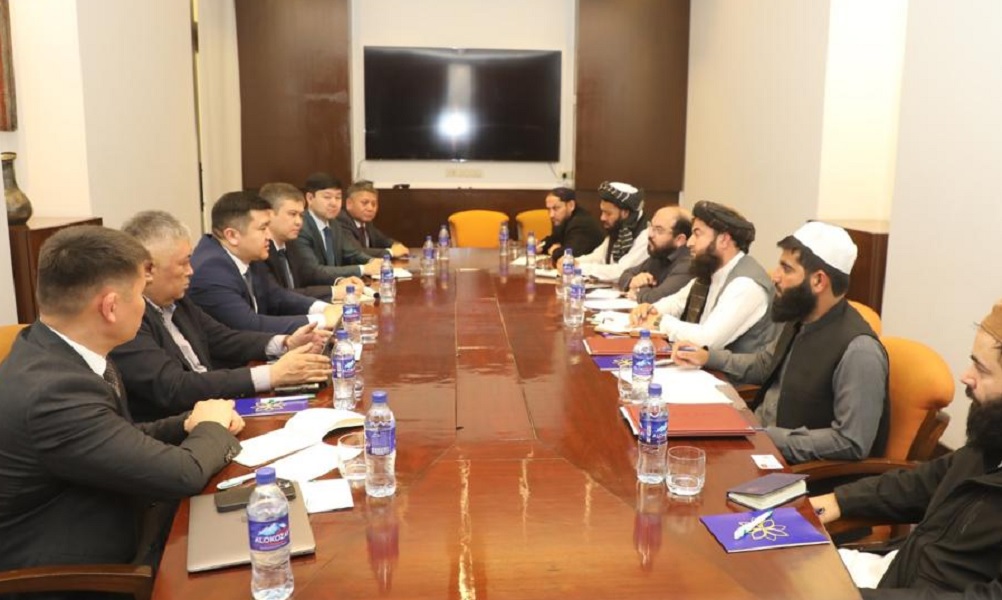Business
Tajikistan reduces power supply to Afghanistan from 350 to 40MW

Da Afghanistan Breshna Sherkat (DABS), the country’s national power company, announced Monday that imported electricity from Tajikistan to Afghanistan has been reduced from 350 megawatts to 40 megawatts effective Tuesday.
In a statement released on Monday, DABS said the power has been reduced due to water shortages in Tajikistan.
However, DABS stated that an alternative had been found and that an additional 200 megawatts from Uzbekistan is being imported for Kabul and other provinces. DABS also said it was hoping to secure a further 200 megawatts as soon as possible.
“We faced the issue at 7am on Sunday, the electricity company was able to talk to Uzbekistan, and now we have provided 200 megawatts of electricity from Uzbekistan to Kabul,” Wahidullah Tawhidi, a spokesman for DABS said.
“Considering the domestic electricity, we have a total of 300 megawatts of electricity. We’re trying to get another 200 megawatts of electricity as soon as possible. The power in Kabul is relatively good right now,” he said.
According to DABS, electricity imported from Tajikistan serves Kabul, Nangarhar, Laghman, Logar, Pakita, Khost, Parwan, Panjshir, Kapisa, Baghlan, and parts of Kunduz provinces.
Meanwhile, economists say that more needs to be done to boost the domestic energy sector, especially regarding renewable energy and the production of energy from natural resources such as natural gas.
In November 2019, Bayat Power made history for Afghanistan when it successfully implemented the nation’s first 40-megawatt gas-powered Independent Power Producer (IPP) in over four decades using natural gas.
According to experts, Afghan Gas requires a lot of attention from the Afghan government in order to optimize its operations so as to sufficiently supply fuel for the 40MW power plant which is the only one of its kind in operation currently.
“If investments had been done on the electricity sector over the last decade, we would have become an exporter of electricity by now. I wish investors would successfully implement projects in the energy sector, similar to what Bayat Power did in Jawzjan and other provinces, lighting up thousands of homes,” an Afghan economist Hakimullah Sediqqi said.
“The government should think about this. In the long run, we should see the opening of dams, the opening of solar power, and have plentiful natural gas reserves worth billions of dollars. We should be able to use these resources to solve our problems of poverty and unemployment,” said Salim Toofan, an economic expert.
DABS meanwhile agreed that Afghanistan does have the means to produce power for the country.
“There is the capacity of using solar, gas, and water energy to generate electricity in Afghanistan,” said Tawhidi.
“Currently, the solar system in Kandahar province generates 40 megawatts, and the hydroelectric power dam of Helmand also generates 100 megawatts of electrical power,” he said.
However, noting private investors’ achievements in this sector, he said: “Bayat and Ghazanfar Groups have invested in power production utilizing natural gas in the northern part of the country, of which Bayat group’s electricity supply project is operational.”
He said: “There are opportunities for the private sector to invest in energy supply, and the government is ready to cooperate with them.”
The use of natural gas in energy production, specifically by Bayat Power – the first natural gas power plant in Afghanistan – has the potential to boost domestic energy production to 200MW as planned, provided Afghan Gas can deliver the much-needed fuel to operate the state of the art SGT-A45 Siemen’s turbines, which are the first to be deployed worldwide, in Afghanistan.
Business
Afghanistan-Kazakhstan banking ties discussed in Kabul meeting
Business
Afghanistan, Kazakhstan envoys discuss expanding trade and regional connectivity
Ambassador Shakeeb thanked Kazakhstan for its continued support and constructive engagement with Afghanistan, particularly in efforts aimed at peace and economic development.

Afghanistan’s Ambassador to Pakistan, Sardar Ahmad Shakeeb, has met with Kazakhstan’s Ambassador to Pakistan, Yerzhan Kistafin, to explore ways to strengthen bilateral relations and advance regional cooperation.
The two envoys exchanged views on Afghanistan–Kazakhstan ties, regional connectivity, and major infrastructure initiatives, as well as the opportunities and challenges facing regional trade. Discussions also touched on Kazakhstan’s role in promoting regional stability and other matters of mutual interest.
Ambassador Shakeeb thanked Kazakhstan for its continued support and constructive engagement with Afghanistan, particularly in efforts aimed at peace and economic development.
He expressed hope that the proposed $3 billion joint trade agreement, once finalized, would bring tangible benefits to both countries and contribute to broader regional economic integration.
Ambassador Kistafin reaffirmed Kazakhstan’s support for stability and economic growth in Afghanistan, highlighting his country’s involvement in key regional connectivity and trade projects.
He said the current security and stability situation in Afghanistan has increased Kazakhstan’s confidence in expanding regional trade and transit, and praised the efforts of the Islamic Emirate in this regard.
He also stressed the need for coordinated regional efforts to ensure lasting stability, sustainable economic development, and the smooth movement of goods and transit across the region.
Business
Mahirood Customs leads Iran’s exports to Afghanistan
More than 1.5 million tonnes of goods were exported to Afghanistan through the border crossing during this period.
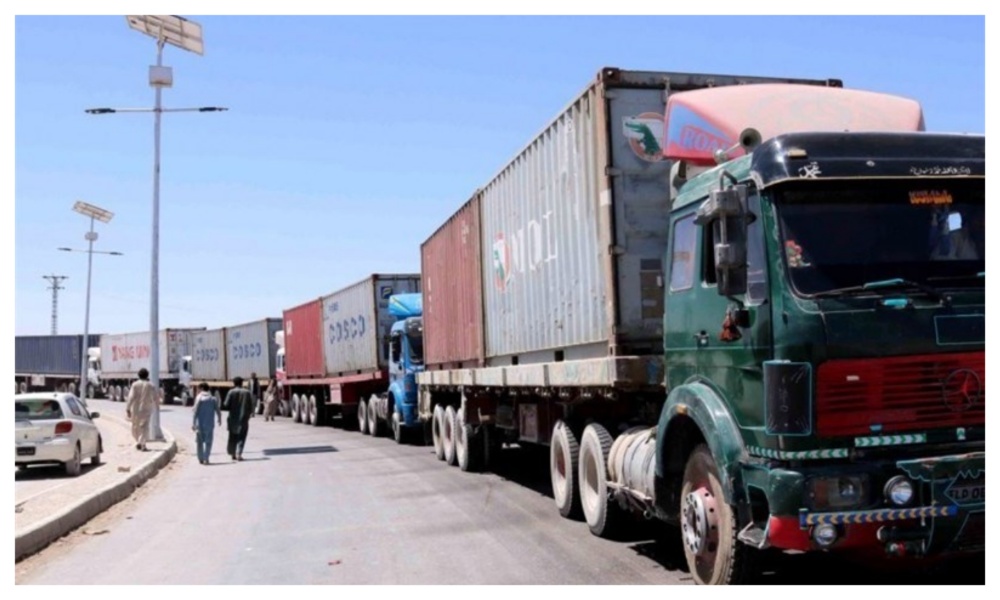
Mahirood Customs in South Khorasan province has become Iran’s main export gateway to Afghanistan, accounting for 36 percent of the country’s total exports to its eastern neighbor, Iranian officials said.
South Khorasan Governor Seyed Mohammadreza Hashemi told local media that Mahirood ranked first among Iran’s 71 active customs points during the first eight months of the current Iranian year.
More than 1.5 million tonnes of goods were exported to Afghanistan through the border crossing during this period.
Official customs figures show that Iran’s total exports to Afghanistan exceeded 4.26 million tonnes in the first eight months of the year, with Mahirood handling the largest share, Hashemi said.
He attributed the strong performance to South Khorasan’s strategic location, improved border infrastructure, effective planning, close cooperation with traders, and coordinated efforts by government agencies.
Hashemi said the expansion of exports via Mahirood Customs is contributing to economic growth, job creation, and stronger economic diplomacy for the province.
He added that continued support for exporters and streamlined customs procedures could further increase South Khorasan’s share of the Afghan market and other target markets in the future.
-

 Latest News4 days ago
Latest News4 days agoUS delivers second batch of Afghan Black Hawk helicopters to Peru
-

 Latest News3 days ago
Latest News3 days agoGermany speeds up admission of Afghans from Pakistan
-

 Sport3 days ago
Sport3 days agoIPL 2026 Auction set for Abu Dhabi with $28.6 million purse at stake
-

 Business4 days ago
Business4 days agoAfghan economy posts second year of growth despite deep structural challenges
-

 Latest News3 days ago
Latest News3 days agoAfghanistan to establish independent oil and gas authority
-

 Sport4 days ago
Sport4 days agoATN to broadcast ‘The Best FIFA Football Awards 2025’
-

 Latest News3 days ago
Latest News3 days agoUS intelligence chief warns of ‘direct threat’ from suspected terrorists inside the country
-

 International Sports4 days ago
International Sports4 days agoILT20: Jahangir powers Dubai Capitals to nine-run win over Abu Dhabi Knight Riders


